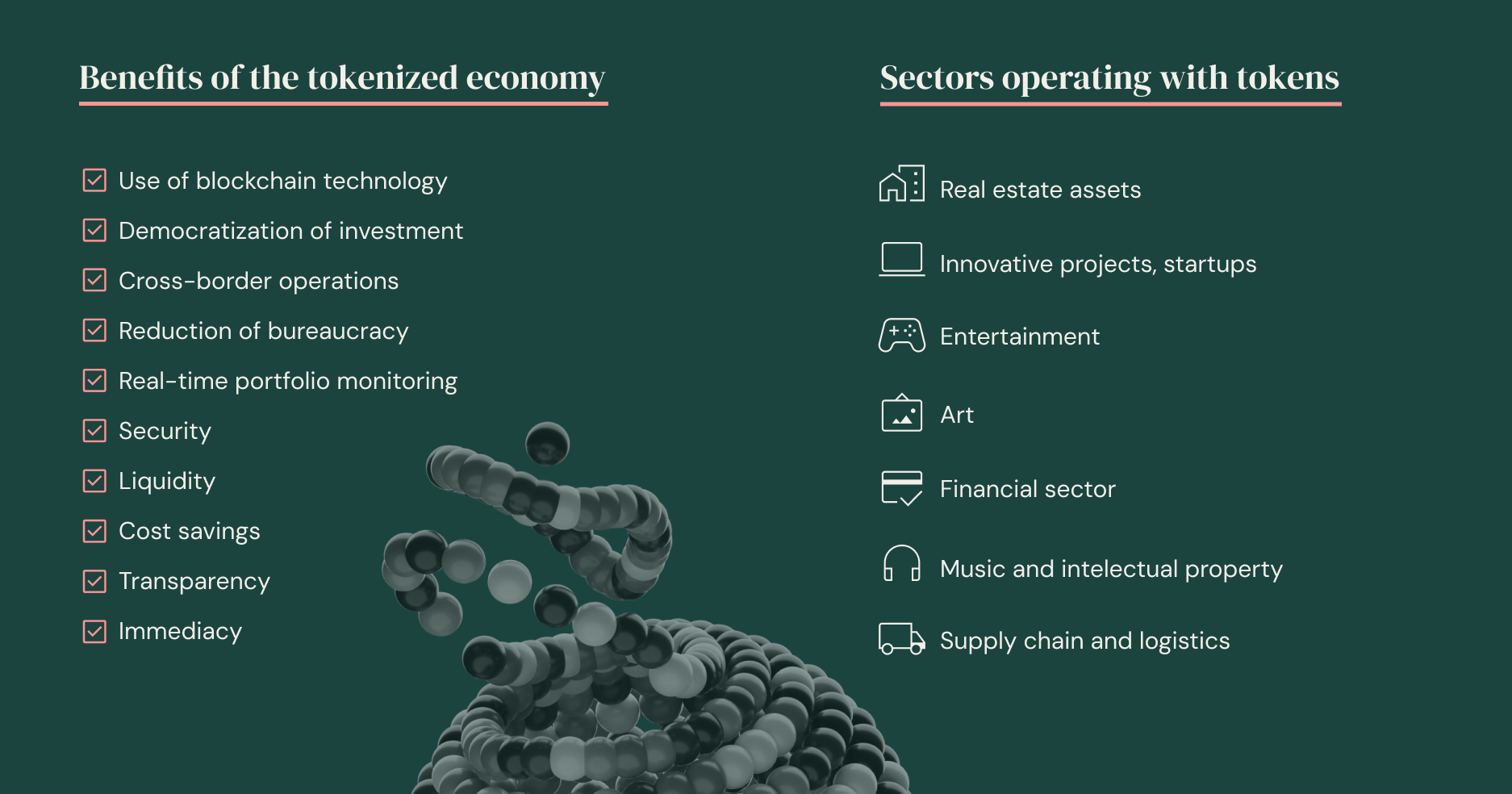The emergence of blockchain technology has created new opportunities for businesses, such as the tokenization of real estate investments. To understand the context, it is first useful to understand what a token is. A token is a unit of value issued by a private entity on a blockchain network, ensuring that the transaction is agile and secure.
What is asset tokenization?
Asset tokenization, such as real estate projects, involves the digital representation of a right or value of a real asset. One of the main benefits of tokenization is that it introduces liquidity to the market, as a token can be sold at any time in transparent and immediate transactions.
Which industries are tokenizing?
Tokenization through blockchain allows the digital representation of tangible assets such as real estate and artworks, as well as intangible assets like intellectual property and company shares. Below, we detail some of the sectors that are already operating with tokens.
Why the tokenized economy is the future of business
The tokenized economy brings numerous benefits to businesses through the use of blockchain, enabling more efficient and secure operations that are accessible to a larger number of people. These operations are cross-border and result in cost savings due to the reduced number of intermediaries. Investors can easily buy, hold, or sell their digital assets, monitor their portfolio in real-time, and conduct transactions whenever they want with complete transparency.

Opportunities of the tokenized economy
There are new financing methods that any company should consider to secure its growth beyond traditional bank loans. We are talking about ICOs (Initial Coin Offerings) and STOs (Security Token Offerings).
ICOs (Initial Coin Offerings)
ICOs, similar to an initial public offering (IPO), are increasingly used by startups to raise funds as they are a faster and more agile method than traditional ones. Through an ICO, companies raise capital by issuing tokens or coins to investors in exchange for cryptocurrencies. Most of the tokens used in these operations are utility tokens, which grant access to goods or services.
STOs (Security Token Offerings)
STOs, are considered the evolution of ICOs. They issue tokens backed by a tangible asset, such as real estate investments, using security tokens. Tokenized real estate investments, in addition to the inherent benefits of using blockchain, offer specific advantages, such as eliminating the barrier to entry for investment, reducing bureaucratic hurdles, and enhancing the liquidity of the investment due to the ease of transferring the representative title, the security token.
Token exchange platforms
Token exchange platforms, called exchanges, are digital marketplaces where investors can buy, sell, and trade cryptocurrencies and tokens. These platforms play a crucial role in determining the price of cryptocurrencies, based on supply and demand.
These platforms differ from traditional exchanges primarily due to their commitment to decentralization, which is the foundation of blockchain philosophy. Decentralized exchanges (DEX) provide privacy and autonomy to the parties involved in transactions and allow participation from a wide range of users beyond major investors and institutions, as the user only needs internet access.
Legal framework for token issuance and management
The Spanish Law on the Securities Market and Investment Services (LMVSI) indicates that negotiable securities can be represented by tokens without altering their nature and, in addition, offers protection and guarantees for investments.
At the European level, the Regulation on Markets in Crypto-assets (MiCA) has been created with the aim of adapting the Union's legislation to the digital age. "The Union has a strategic interest in developing and promoting the adoption of transformative technologies in the financial sector, including the adoption of distributed ledger technology or tokenization, so as to contribute to a forward-looking economy serving people, generating new types of business activity and business models that will foster economic growth and employment opportunities for Union citizens."
The regulation aims to ensure the orderly functioning of crypto-asset markets, requiring service providers to have detailed operating rules, and for their systems and procedures to be resilient, transparent, and non-discriminatory. It also mandates that they keep a record of all transactions and be able to detect potential cases of market abuse by customers.
Predictions on the impact of tokenization on the global economy
The World Economic Forum has estimated that 10% of the global GDP will be tokenized or stored using blockchain technology by 2027. It also considers that the total size of tokenized illiquid assets, including real estate and natural resources, will exceed 15.2 billion euros by 2030.
Tokens are not only used to buy products, but they can also serve as access to games, entry to events, represent company shares, or simply be collectibles.

